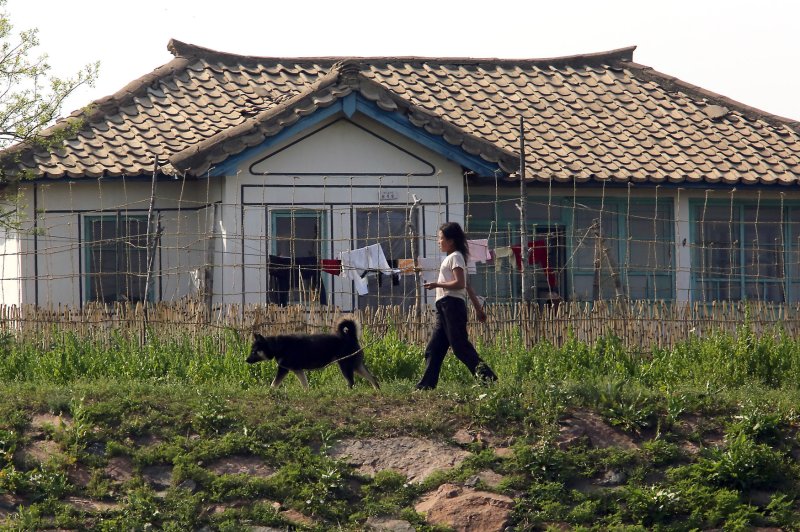A North Korean woman walks her dog in a small village near the North Korean city Sinuiju, across the Yalu River from Dandong, China's largest border city with North Korea. Under Kim Jong Un the population of forced laborers have increased from 50,000 to 60,000. Photo by Stephen Shaver/UPI |
License Photo
BANGKOK, June 10 (UPI) -- North Korean laborers forced to work in Mongolian factories are toiling in substandard conditions, the International Labor Organization said Wednesday.
Sophy Fisher, a senior communications officer at the ILO's Asia office, said North Koreans in Mongolia are suffering abuse of workers' rights. Their pay is delayed, and they are obligated to offer their salaries to their supervisors as contributions, Voice of America reported.
Fisher said Mongolia is a signatory to the ILO's Forced Labor Convention No. 29, and Ulan Bator is required by the convention to put an end to forced labor conditions.
North Korea operates a global network of forced laborers, according to North Korean defector Lim Il. Lim, who escaped a life of slave labor at a construction site in Kuwait, said North Korea's leadership makes hundreds of millions of dollars from its slave labor force in the Middle East, Russia and other countries, including Mongolia.
Lim has said North Korea's system of slave labor earns the regime more than $1.8 billion annually.
A Mongolian envoy to Washington has said there are around 2,000 North Korean workers in Mongolia's textile factories and agricultural sector.
South Korean news agency Yonhap reported a five-year agreement between Mongolia and North Korea is driving the supply of North Korean forced labor to Mongolia.
The number of North Korean workers in Mongolia is expected to rise to 4,000, the Korea Times reported. Under Kim Jong Un the population of forced laborers have increased from 50,000 to 60,000.
North Koreans are increasingly less likely to work abroad to bring in foreign currency, because of economic opportunities available inside North Korea and because of exploitive work conditions overseas.















